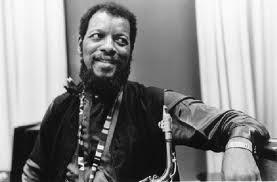
Two highly original thinkers share their views on improvisation. Both experienced discrimination: one as an Algerian Jew in colonial France, the other as an African-America in depression-era Texas. Both believe it put them at a distance from their own "languages of origin" yet spurred them to creative acts.
Jacques Derrida on improvisation:
"The very concept of improvisation verges upon reading, since what we often understand by improvisation is the creation of something new, yet something which doesn't exclude the pre-written framework that makes it possible."
Ornette Coleman on improvisation:
"Two or three people can have a conversation with sounds, without trying to dominate it or lead it. What I mean is that you have to be . . . intelligent, I suppose that's the word. In improvised music I think the musicians are trying to reassemble an emotional or intellectual puzzle, in any case a puzzle in which the instruments give the tone."
